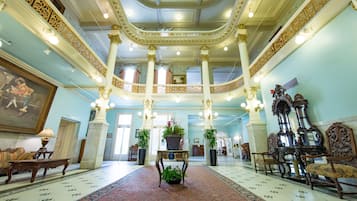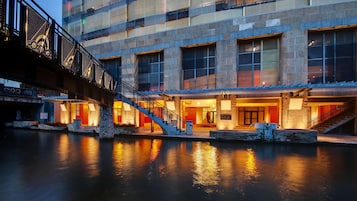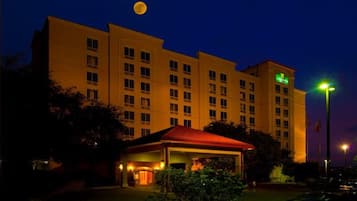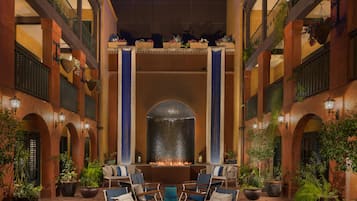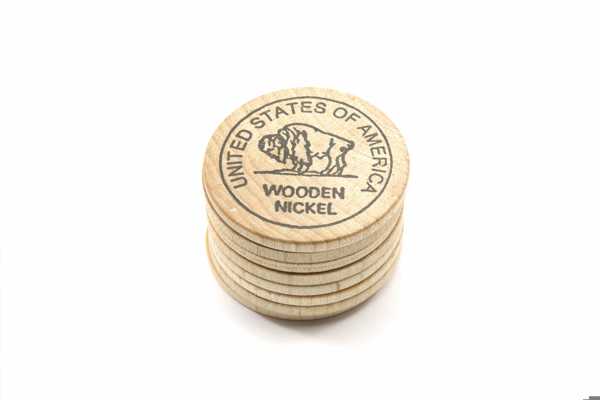The La Villita Historic Arts Village is the cultural centre and first neighbourhood of San Antonio. Located on the River Walk’s southern bank, it has over 300 years of history and serves as a thriving arts hub to many local artists, vendors, and performance spaces.
Architecture lovers with be enthralled by the cultural mix of palisado, adobe and Victorian houses, all lining the beautiful cobblestone streets. Find a unique handmade gift or spice up your home with a custom art piece from one of the 300 local artists in the area. La Villita Historic Arts Village is a colourful and educational destination fit for the whole family. Best of all, it is free to visit.
La Villita Historic Arts Village in San Antonio - one of the highlights of 10 Most Popular Streets in San Antonio (Read all about San Antonio here)
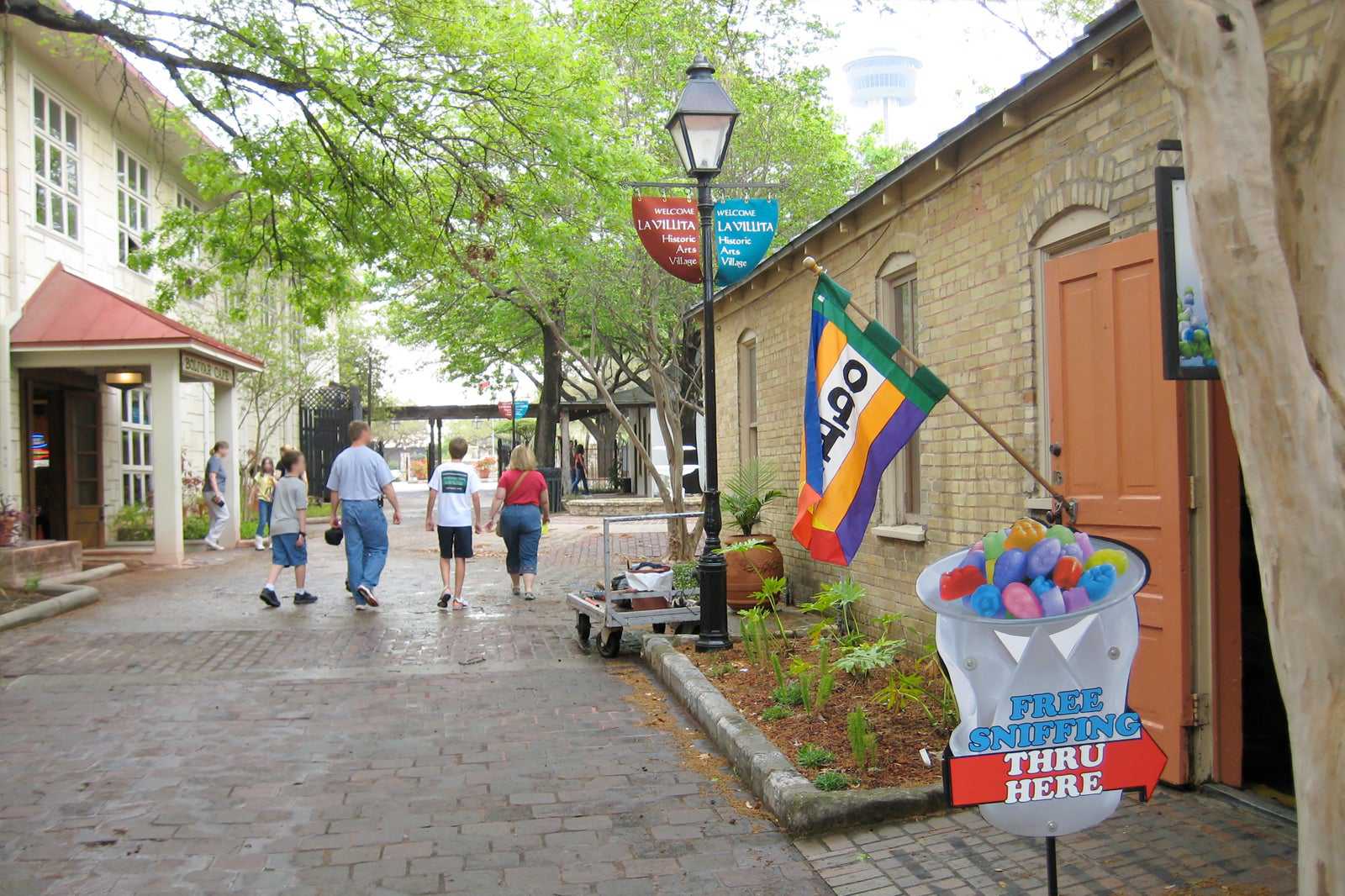
What are the highlights of La Villita Historic Arts Village?
One of the most enjoyable things to do in La Villita is wandering the cobblestone streets and checking out the landmark sites. The Little Church of La Villita has been hosting services since 1879, offering a beautiful, intimate setting for you to take a moment and reflect.
Across the street is the dramatic Arneson River Theatre, known for its outdoor operas and musicals. Uniquely, the namesake river separates the stage from the audience. Make sure to check the event list of neighbouring Villita Assembly Hall, a multi-purpose event centre that hosts all kinds of activities throughout the year.
Another highlight of visiting La Villita is the incredible shopping, especially that of artisan handmade goods. Find unique metal-smithed decorations and jewellery at Equinox or explore glistening copper home goods at the Copper Gallery. Huipil Market showcases colourful handwoven textiles while Villita Stained Glass sells all kinds of kaleidoscope-inspired pieces to jazz up your home. Don't leave without dropping by the River Art Group, a large gallery displaying works by over 300 artists.
A brief history of La Villita Historic Arts Village
La Villita has a rich and colourful history dating back to the 18th century, when its first settlers were squatters with no title to the land. As The Alamo Mission grew, the area became farmlands providing for the population and eventually formatted part of the town that would become San Antonio. During the Texas War for Independence in 1835, La Villita became a hotbed of revolutionary activity, with frequent skirmishes occurring on the fringes until it surrendered to the Texan commander.
After several decades of instability and an influx of European settlers, La Villita started to thrive in the late 1800s with thousands of townspeople plying their trade and selling their wares to neighbouring towns. The Great Depression caused another downturn in the neighbourhood – often compared to a ‘slum’ – however, a local mayor recognised the cultural importance of investing in and rebuilding La Villita. Soon after, the neighbourhood re-emerged as the cultural hub we have today.
Good to know about La Villita Historic Arts Village
The La Villita Historic Arts Village is open every day of the week, but parking can be a challenge due to its location in the city centre. Opt for a ride-share or taxi to get to and from the area. This will also allow you to enjoy a night out on the neighbouring River Walk without having to worry about driving.
Opt for a guided tour if you want a more intimate and educational experience in the village. It’s a good idea to time your visit in April when the Fiesta San Antonio takes place. La Villita hosts the wondrous A Night in Old San Antonio event with dozens of food vendors from around the world. It has the art village's narrow streets covered in colourful decorations, while over 80,000 celebrants dress up in elaborate costumes.
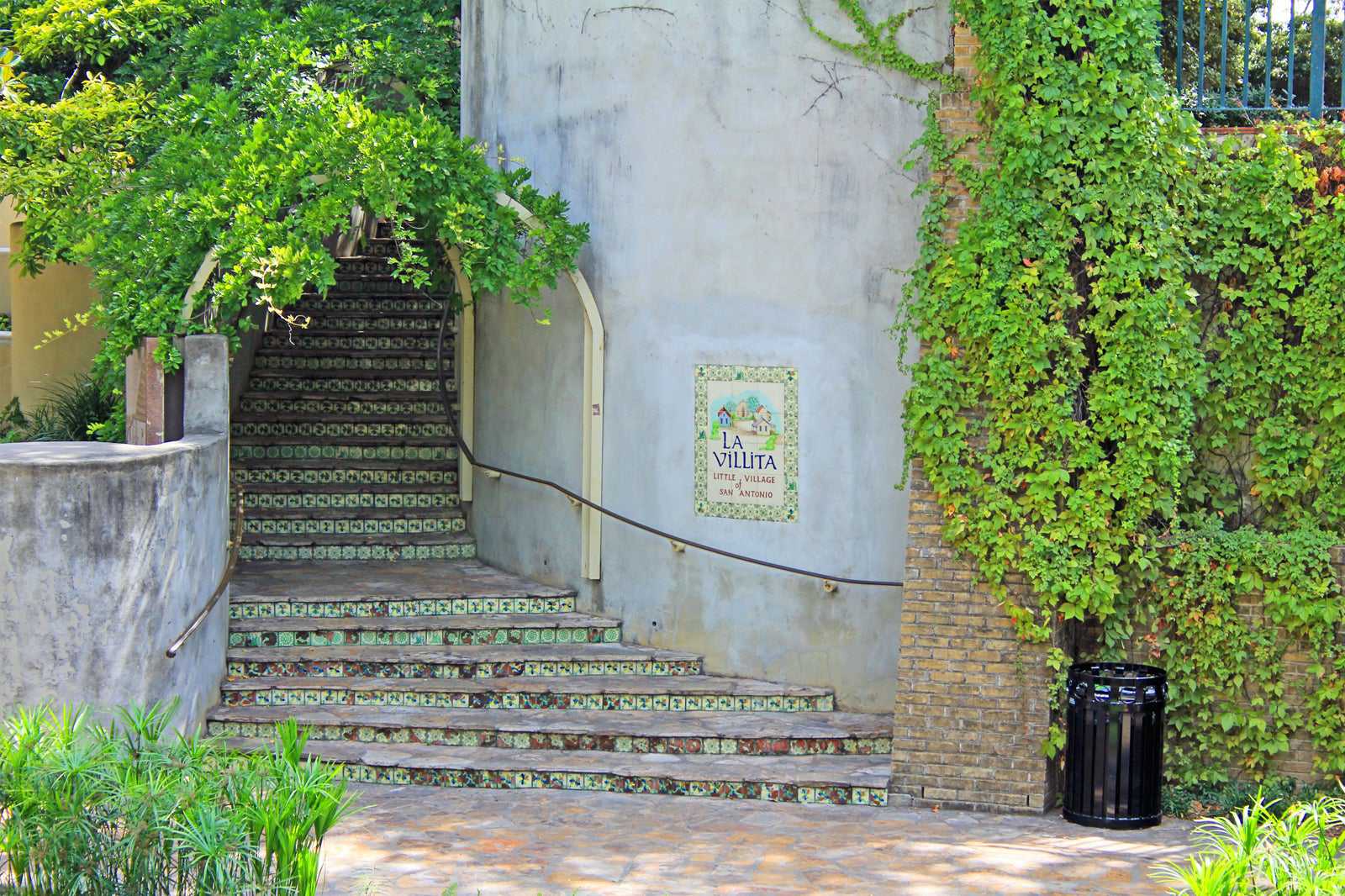
La Villita Historic Arts Village in San Antonio
Lokasi: 418 Villita St, San Antonio, TX 78205, USA
Buka: Monday–Saturday from 10 am to 6 pm, Sunday from 10 am to 4 pm
Telepon: +1 210-207-8614





